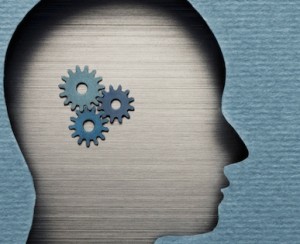Primacy Effect in Memory Definition
 The primacy effect denotes the phenomenon that after encountering a long list of items, one will more likely be able to recall the first few items from that list than items than from later parts of the list. In a typical study investigating the primacy effect, participants are sequentially presented with a list of words, each being presented for a fixed amount of time. After the words have been presented, participants are asked to write down all the words from the list that they recall. A primacy effect is found when participants correctly recall words from the first few positions in a list more often than they recall words from later list positions.
The primacy effect denotes the phenomenon that after encountering a long list of items, one will more likely be able to recall the first few items from that list than items than from later parts of the list. In a typical study investigating the primacy effect, participants are sequentially presented with a list of words, each being presented for a fixed amount of time. After the words have been presented, participants are asked to write down all the words from the list that they recall. A primacy effect is found when participants correctly recall words from the first few positions in a list more often than they recall words from later list positions.
History and Importance of Primacy Effect in Memory
The primacy effect and its counterpart, the recency effect, which describes a recall advantage for the last few items of a list compared with items in the middle, combine to form the U-shaped serial position curve of list recall. This phenomenon was interpreted as evidence for two different memory systems—a long-term store that is the basis for the primacy effect, and a short-term store that is responsible for the recency effect. This distinction has influenced many theories of human memory.
Academic Writing, Editing, Proofreading, And Problem Solving Services
Get 10% OFF with 24START discount code
Primacy Effect in Memory Evidence
The primacy effect has been explained by a rehearsal advantage for words presented early in the list: They are rehearsed more often than subsequent words. This was found in an early study, in which participants were asked to overtly rehearse the words they were to memorize. Results showed that the first few words were rehearsed more often than were words presented later in the list. The more frequent rehearsal of an item leads to a stronger long-term memory for that item, and thus a better chance to recall that item, compared with less frequently rehearsed items.
Further evidence for the rehearsal-based explanation of the primacy effect comes from studies that modify participants’ rehearsal. For example, one study presented words at a faster rate, thus reducing participants’ opportunity to rehearse. Under those conditions, the magnitude of the primacy effect is reduced. Additional evidence showing that rehearsal is the basis for the primacy effect comes from studies that modified participants’ rehearsal strategies. When participants were asked to rehearse only the item that is currently presented, no primacy effect was found.
The primacy effect is a general phenomenon that occurs beyond laboratory settings where participants are explicitly asked to memorize a list of items. A primacy effect has also been found in studies in which participants were unaware of a subsequent memory test. A primacy effect has also been shown in the domain of television commercials: Participants viewing a television program that was interrupted by blocks of commercials showed better memory for the first three commercials than for commercials broadcast later in the block.
Reference:
- Glanzer, M., & Cunitz, A. R. (1966). Two storage mechanisms in free recall. Journal of Verba] Learning & Verba] Behavior, 5, 351-360.